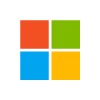In the ever-evolving landscape of technology, open source projects have become a cornerstone of innovation and collaboration. From Linux, which powers a significant portion of the world’s servers, to frameworks like TensorFlow and React that drive modern web and AI development, open source projects are ubiquitous in the tech world. This article delves into the world of open source, highlighting its importance, the benefits of contributing, and how you can get started.
What is Open Source?
Open source refers to software whose source code is available for anyone to inspect, modify, and enhance. This model promotes a collaborative approach to software development, allowing developers from all over the world to contribute to a project. Some of the most popular open source projects include:
- Linux: An operating system kernel that has become the backbone of many servers and devices.
- Apache: A web server software that powers a large percentage of the internet’s websites.
- Mozilla Firefox: A web browser that emphasizes privacy and open standards.
- WordPress: A content management system (CMS) that powers over 30% of the world’s websites.
Why Contribute to Open Source?
- Skill Development: Contributing to open source projects is an excellent way to improve your coding skills. You’ll encounter real-world problems and learn from more experienced developers.
- Portfolio Building: Having contributions to well-known open source projects on your resume can make you stand out to potential employers.
- Community and Networking: You’ll become part of a global community of developers, which can lead to new friendships, professional connections, and even job opportunities.
- Giving Back: Many of us benefit from open source software every day. Contributing is a way to give back to the community that has provided these valuable resources.
- Learning Collaboration: Open source projects often involve many contributors, teaching you how to collaborate effectively in a team, a crucial skill in the tech industry.
How to Get Started with Open Source
- Find a Project: Start by identifying projects that interest you. Websites like GitHub, GitLab, and Bitbucket host millions of open source projects. You can search by programming language, project type, or even specific issues tagged as “good first issue.”
- Understand the Project: Before diving in, take some time to understand the project. Read the documentation, check out the project’s website, and browse through the source code to get a sense of how things work.
- Join the Community: Many open source projects have active communities. Join their mailing lists, chat rooms, or forums to introduce yourself and ask questions.
- Start Small: Begin with small contributions. This could be fixing a bug, improving documentation, or writing tests. As you become more familiar with the project, you can take on larger tasks.
- Follow the Contribution Guidelines: Most projects have contribution guidelines. These documents outline how to set up your development environment, how to format your code, and how to submit your contributions. Make sure to follow these guidelines to increase the chances of your contributions being accepted.
- Submit Your Contribution: Once you’ve made your changes, submit a pull request or patch. Be sure to provide a clear description of what you’ve done and why. Reviewers may ask you to make changes before your contribution is accepted.
Resources for Open Source Contributions
- GitHub’s Guide to Open Source: An excellent starting point for understanding how to contribute to projects on GitHub.
- First Timers Only: A site dedicated to helping first-time contributors find beginner-friendly projects.
- Up For Grabs: Lists open source projects that actively seek new contributors and have tasks labeled as “beginner-friendly.”
- Code Triage: Helps you find open issues in projects that need attention.
Conclusion
Contributing to open source projects can be a rewarding experience, both personally and professionally. It allows you to improve your skills, build your portfolio, and become part of a global community of developers. Whether you’re fixing bugs, writing documentation, or developing new features, your contributions make a difference. So dive in, find a project that excites you, and start contributing today!



